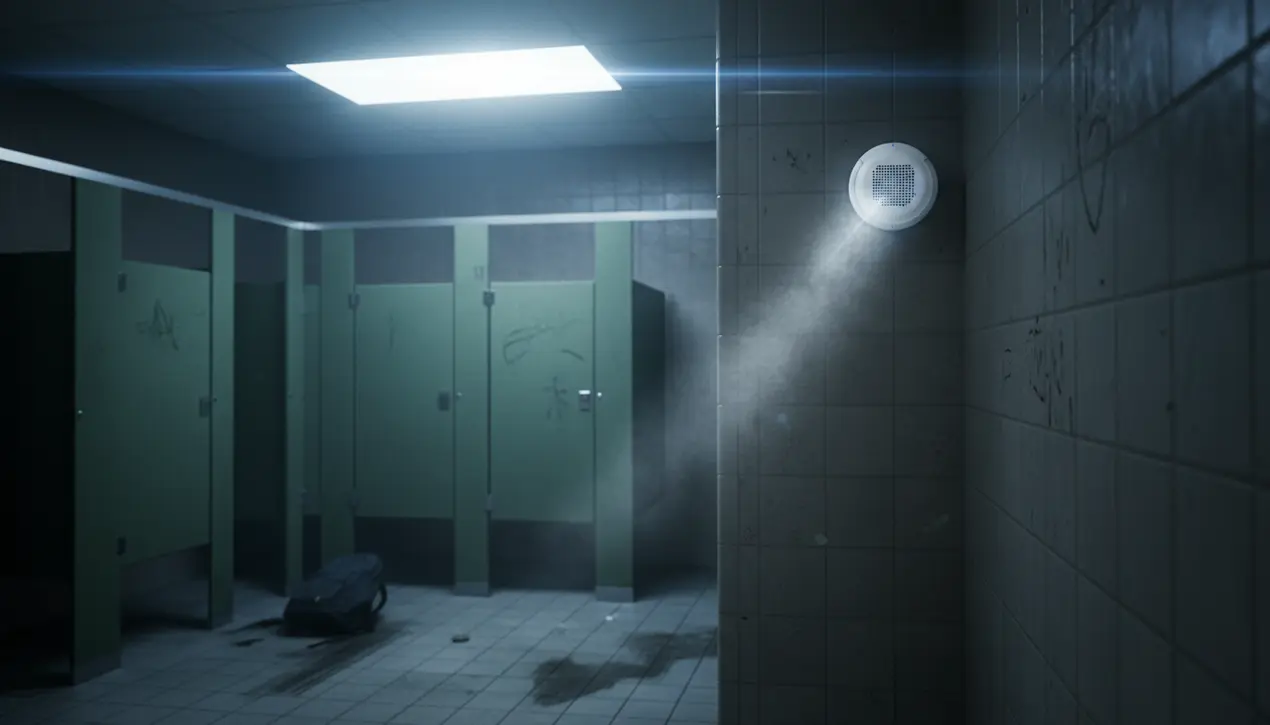
OthereducationSchool Reforms
Vaping Is ‘Everywhere’ in Schools—Sparking a Bathroom Surveillance Boom
MI
Michael Ross
2 hours ago7 min read
The familiar scent of chalk dust and floor wax in American school hallways is now being overtaken by a more clandestine aroma—the faintly sweet plumes of fruit-flavored vapor. In a dramatic escalation of the ongoing battle against student vaping, schools across the United States are deploying a new class of sentinel: sophisticated vape-detection sensors installed in the one place students believed was a sanctuary from adult oversight—the school bathroom.This isn't merely about confiscating contraband; it's a full-scale technological intervention, sparking a complex debate that pits public health imperatives against personal privacy in a way that would make Isaac Asimov himself ponder the nuances of his Three Laws of Robotics. These devices, often discreetly mounted near ceilings, are far more advanced than simple smoke alarms.They are environmental sleuths, capable of detecting the specific chemical signatures of nicotine and THC aerosol, and many are equipped with audio analytics that can pinpoint the sound of a vape exhale or even acts of bullying. Upon detection, they instantly alert school administrators via text or email, often including a timestamp, creating a near-instantaneous digital tattletale.The rationale from school districts is rooted in a genuine health crisis. The CDC has reported alarming rates of e-cigarette use among youth, with products like Juul and Puff Bar creating a new generation of nicotine dependents, while the proliferation of THC vapes introduces another layer of risk.For principals and superintendents, these sensors represent a proactive, 21st-century solution to an epidemic that thrives in the shadows, a way to safeguard student lungs and minds in an era where traditional hall monitors are powerless against such discreet devices. The companies behind this surveillance boom, firms like HALO Smart Sensors and Soter Technologies, market their products not as spies but as guardians, a necessary shield in the war for student wellness.Yet, this technological fix forces a profound ethical calculus. What is the societal cost of normalizing pervasive surveillance for the youngest members of our society? We are conditioning a generation to accept that their every move, even in the most private of school spaces, is potentially being monitored and logged.This creates a chilling effect, not just on vaping, but on the very concept of private contemplation and informal social interaction. The school bathroom has historically been a rare zone for unscripted conversation, a brief respite from the structured gaze of the classroom—a space where students can gather their thoughts or share a quiet confidence.By turning it into a panopticon, we risk solving one public health problem while inadvertently creating a psychological one, teaching students that trust is secondary to control. Furthermore, the implementation of this technology is a minefield of practical and legal questions.How is the data collected, stored, and eventually destroyed? Could it be subpoenaed in disciplinary or even legal proceedings? What prevents a school resource officer from using a vape alert as probable cause for a more invasive search? The potential for mission creep is significant, where a system designed to catch vaping could easily be expanded to monitor for other behaviors, eroding student privacy piece by piece. The debate echoes larger societal tensions around AI ethics and surveillance capitalism, but with a uniquely vulnerable population at its center. Are we, in our quest to protect children from one set of harms, inadvertently exposing them to another, more insidious one—the erosion of their expectation of privacy and the right to make mistakes in relative anonymity? The vape detectors in school bathrooms are more than just gadgets; they are a stark, real-world experiment in balancing safety and freedom, and the final grade on their impact is far from in.
#vaping
#school surveillance
#student health
#bathroom monitoring
#privacy concerns
#education policy
#featured
Stay Informed. Act Smarter.
Get weekly highlights, major headlines, and expert insights — then put your knowledge to work in our live prediction markets.
Related News
Comments
Loading comments...
© 2025 Outpoll Service LTD. All rights reserved.